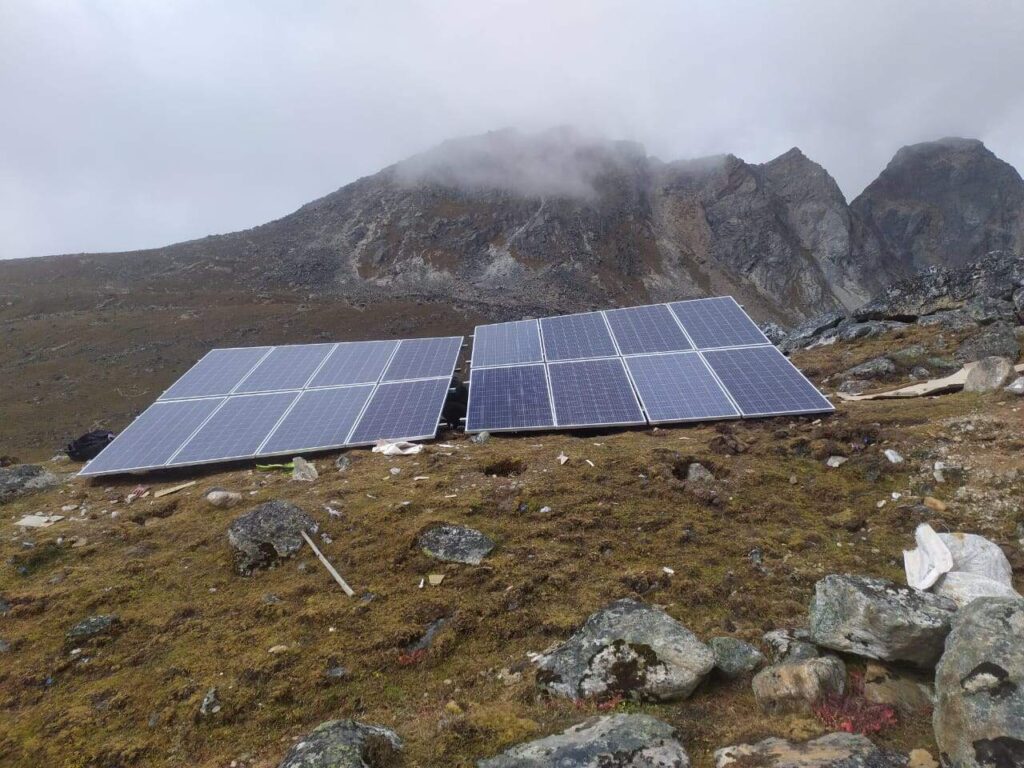Solar panels are becoming an increasingly popular way to generate clean, renewable energy for homes and businesses. In this article, we’ll explore how solar panels work and the science behind them.
What are Solar Panels?
Solar panels, also known as photovoltaic (PV) panels, are devices that convert sunlight into electricity. They are made up of multiple solar cells, which are made from silicon and other materials that absorb photons from the sun’s rays and release electrons, generating an electric current.
How do Solar Panels Work?
When sunlight hits a solar panel, the photons are absorbed by the solar cells. This generates an electric current, which flows through the panel and into an inverter, where it is converted into alternating current (AC) electricity that can be used to power homes and businesses.
The amount of electricity that a solar panel can generate depends on a variety of factors, including the size and quality of the panel, the angle and orientation of the panel, and the amount of sunlight it receives.
Advantages of Solar Panel
There are many advantages to using solar panels to generate electricity:
- Renewable and Sustainable: Solar panels use the energy from the sun, which is a renewable and sustainable source of energy. It doesn’t produce any greenhouse gas emissions or air pollution, making it a clean and environmentally friendly option.
- Energy Cost Savings: By generating your own electricity with solar panels, you can significantly reduce your monthly energy bills. Depending on the size of the system, you may even be able to generate more electricity than you need, and sell the excess back to the grid for a profit.
- Low Maintenance: Solar panels are relatively low-maintenance, requiring only occasional cleaning and inspection to ensure they are functioning properly.
- Long Lifespan: Solar panels have a long lifespan, typically lasting 25-30 years or more with minimal degradation in performance.
- Increase Property Value: Solar panels can increase the value of your property, as many home buyers are willing to pay a premium for a home with an existing solar system.
- Energy Independence: By generating your own electricity with solar panels, you can become less reliant on the power grid and reduce your dependence on fossil fuels.
- Government Incentives: Many governments offer incentives such as tax credits and rebates to encourage the adoption of solar energy, making it more affordable for homeowners and businesses to install solar panels.
- Versatility: Solar panels can be installed on rooftops, on the ground, or even on a portable stand, making them a versatile option for a variety of settings and applications.
disadvantages of Solar Panel
While there are many advantages to using solar panels, there are also some disadvantages to consider:
- High Upfront Costs: The initial cost of installing a solar panel system can be high, which can be a significant barrier to adoption for many homeowners and businesses. However, the cost of solar panels has decreased significantly in recent years, making them more affordable than ever before.
- Weather Dependent: Solar panels require sunlight to generate electricity, which means that they are dependent on weather conditions. In areas with limited sunlight, solar panels may not be as effective, which can limit their usefulness in certain regions.
- Energy Storage: Solar panels generate electricity only during daylight hours, which means that energy storage systems, such as batteries, are needed to store excess energy generated during the day for use at night. Energy storage systems can be expensive and require additional maintenance.
- Installation Requirements: Installing solar panels may require modifications to your roof or property, such as additional structural support or rewiring. These modifications can add to the cost of installation and may be more challenging for older homes or buildings.
Conclusion
Solar panels are a powerful and effective way to generate clean, renewable energy. By harnessing the power of the sun, they can help homeowners and businesses save money on their energy bills, reduce their carbon footprint, and increase the value of their property. As technology continues to improve, solar panels are likely to become an even more important part of our energy mix in the years to come.
Friends, I hope that in this blog, How Solar Panel Work?, What is Solar Panel?, what are the Advantages and disadvantages of Solar Panel. All these questions must have been answered.
If you have any more questions about Solar Panels, then do comment below. I will surely reply to your comment.
Friends, if you like this blog, then definitely share it.
Thank you
Read other posts below and enhance your knowledge-

That is a very good tip especially to those new to the blogosphere. Short but very accurate information… Many thanks for sharing this one. A must read article! http://www.kayswell.com